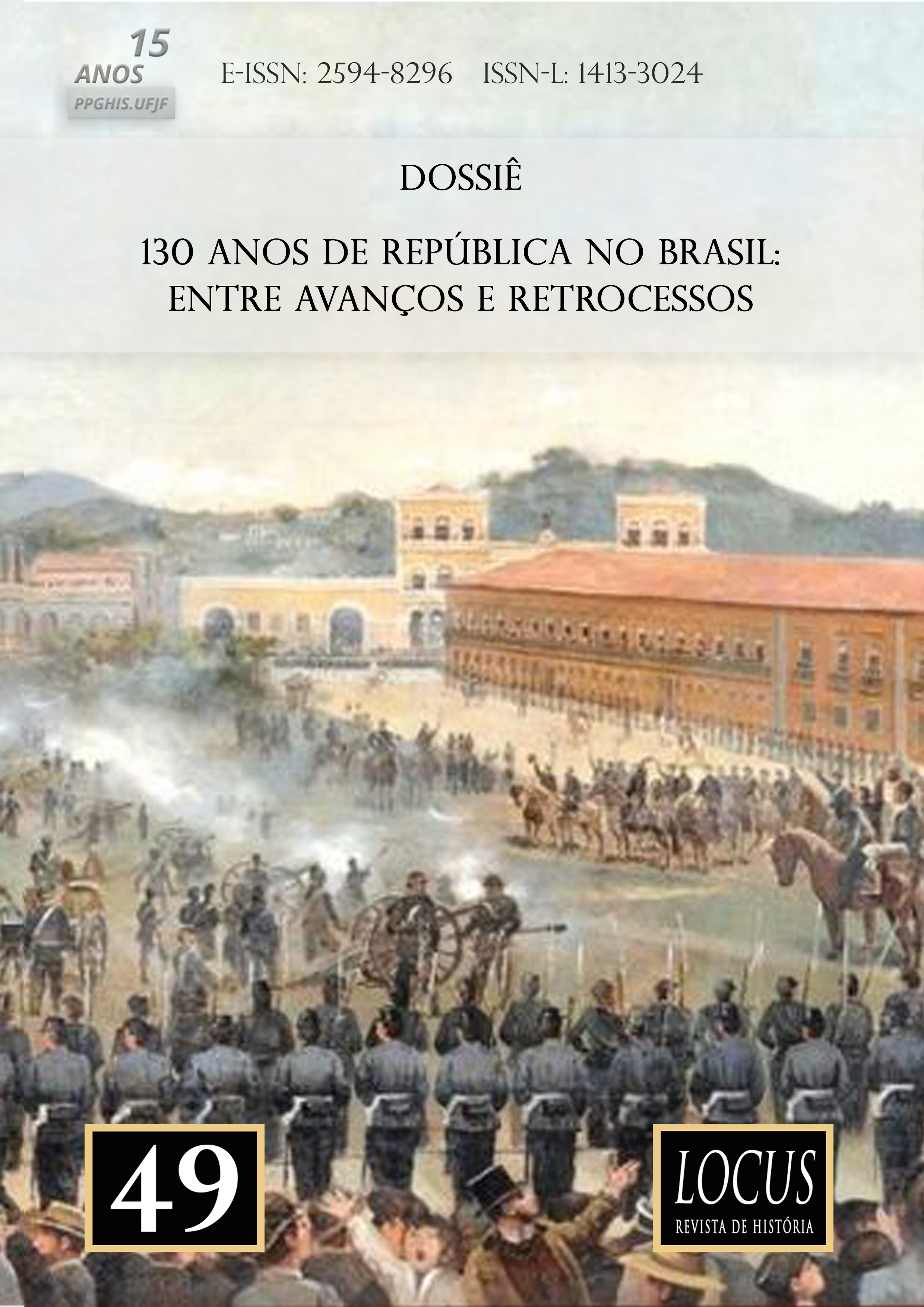Delations and everyday life in Brazil during the civil-military dictatorship
Published 2019-12-05 — Updated on 2021-04-28
Versions
- 2021-04-28 (2)
- 2019-12-05 (1)
Keywords
- Dictatorship,
- Denunciation,
- Everyday life
How to Cite
Copyright (c) 2019 Janaina Martins Cordeiro

This work is licensed under a Creative Commons Attribution 4.0 International License.
Abstract
The formulation of complaints and denunciations against individuals, groups or situations considered suspicious has been a recurring practice in modern times. Specifically, dictatorships and authoritarian regimes of the twentieth century largely encouraged such behaviors. This article proposes to analyze the accusatory practices in Brazil during the 1964 civil-military dictatorship. In this regard, it seeks to understand the ways in which citizens resorted to the state and its institutions in order to denounce local authorities, neighbors, acquaintances, co-workers, etc. Considering the plurality of denunciation practices, in addition to the complaints provided by regime informants, the article proposes to analyze the motivations of “eventual informants” and, more broadly, aims to understand how society's daily life was invaded and shaped by language and modes of action deemed appropriate by the dictatorship.
Downloads
References
- ALONSO, Gustavo. Quem não tem swing morre com a boca cheia de formiga: Wilson Simonal e os limites de uma memória tropical. Rio de Janeiro: Record, 2011.
- BERGERSON, Andrew Stuart. Ordinary Germans in extraordinary times. The Nazi revolution in Hildesheim. Bloomington: Indiana University Press, 2004.
- BORGES, Nilson. “A Doutrina de Segurança Nacional e os governos militares”. In: FERREIRA, Jorge e DELGADO, Lucília de Almeida Neves (orgs.). O Brasil Republicano. O tempo da ditadura: regime militar e movimentos sociais em fins do século XX. Rio de Janeiro, Civilização Brasileira: 2007.
- CASTRO, Adyr Fiúza de. In: D'ARAÚJO, Maria Celina et all. Os anos de chumbo. Rio de Janeiro: Relume-Dumará, 1994.
- CORDEIRO, Janaina Martins. A ditadura em tempos de milagre: comemorações, orgulho e consentimento. Rio de Janeiro: FGV, 2015.
- FITZPATRICK, Sheila; GELLATELY, Robert (eds.). Accusatory practices: Denunciation in Modern European History, 1789-1989. Chicago: The University of Chicago Press Books, 1996.
- GABEIRA, Fernando. O que é isso, companheiro? São Paulo: Companhia das Letras, 2009.
- JOLY, Laurent. “Introduction”. In: _____________ (dir.). La délation dans la France des années noires. Paris: Perrin, 2012.
- KELLY, Catriona. Comrade Pavlik: The Rise and Fall of a Soviet Boy Hero. London: Granta Books, 2005.
- LVOVICH, Daniel. "Sospechar, delatar, incriminar: una aproximación al fenómeno de las denuncias contra el enemigo político en la última dictadura militar argentina". Ayer. Revista de Historia Contemporánea; Lugar: Madrid; Año: 2017.
- MAGALHÃES, Marionilde Dias Brepohl de. “A lógica da suspeição: sobre os aparelhos repressivos à época da ditadura militar no Brasil”. Revista Brasileira de História, São Paulo, v. 17, n. 34, p. 203-220, 1997. Disponível em: http://www.scielo.br/scielo.php?script=sci_arttext&pid=S0102-01881997000200011&lng=en&nrm=iso. Acesso em 28/09/2019. http://dx.doi.org/10.1590/S0102-01881997000200011
- SCHIAVON, Carmen Burgert e PALMA, Virgilina E.Gularte S.Fidelis. “O Inventário do Comendador Domingos Faustino Correa: processos judiciais como fonte de pesquisa e ensino”. REVISTA LHISTE, v. 2, p. 488-503, 2015.
- VELHO, Gilberto. A utopia urbana. Rio de Janeiro: Jorge Zahar, 5a ed., 1989.

